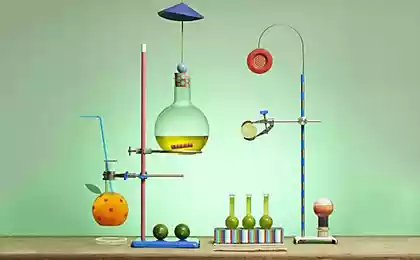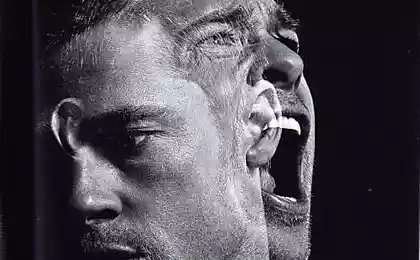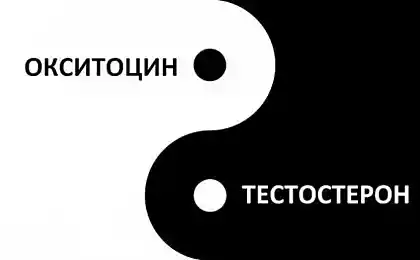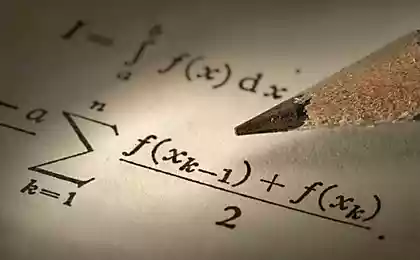472
Science score: a vital skill
During one of his famous speeches Indian philosopher jiddu Krishnamurti asked the audience if they want to learn his secret. Present in the room fell silent and leaned forward. "You know," he said, " I just often don't care." Published a translation of the article of the author of the blog Raptitude about why the fly should remain a fly and the elephant the elephant.

Of course, he didn't say so. According to most, he said, "you Know, I just don't pay attention to what is happening, but he could say and so, and commercials. It seems to me that the concept of care closer to the majority. I apologize in advance for the crudeness of this phrase — and use it I'll be here often, but nothing conveys this truth so well. When you tell someone to "ignore it", it is likely that you will look strange — but not the one who came to a lecture by Krishnamurti.
Everyone understands that in life sometimes there are unpleasant moments that are best to just leave it/not care. Not to score — think about what happened. For example, someone was rude to you on the phone, and you replay the incident in my head, you can't not care. But if you just hung up the phone, shrugged and quietly went to ride a bike, so you have a good score.
If you're worried, it does not mean that you are doing something useful, while it might seem that this is so. It seems quite natural that every time safariways on something, we are approaching some kind of answer. But this is not so, because the constant spinning in my head is the thought process and the thought process is not aimed at finding a solution to the useless.
This sheds light on one of our most deep-rooted and narrow-minded ideas about human thinking: we are confident that most thought valuable in themselves, what they are to something will lead. But most of our thoughts fill our head, and shield from real life. They do not lead to any important decisions or analytical conclusions, they simply absorb us and maybe even make our lives shorter.
We usually think that our thoughts perform some kind of function simply because they are caused by a strong emotion or because they are aimed at a subject that is important to us: fairness, respect, or the current state of society.
No. Thoughts have meaning only if they force your body to move and do something useful. This does not mean that any life disappointment, unkindness, or injustice must immediately respond with action. Quite the contrary. Usually nothing can be done or just don't want to do. And that's fine. In most cases it is better not to do anything just to score.
This concept may seem apathetic. In fact it is not. It's just a refusal to waste his energy and time thinking that anything will not lead. So if you decided on something to rot and make sure that it will lead to some response on what happened, and then move to action. Here is a good pattern of action.
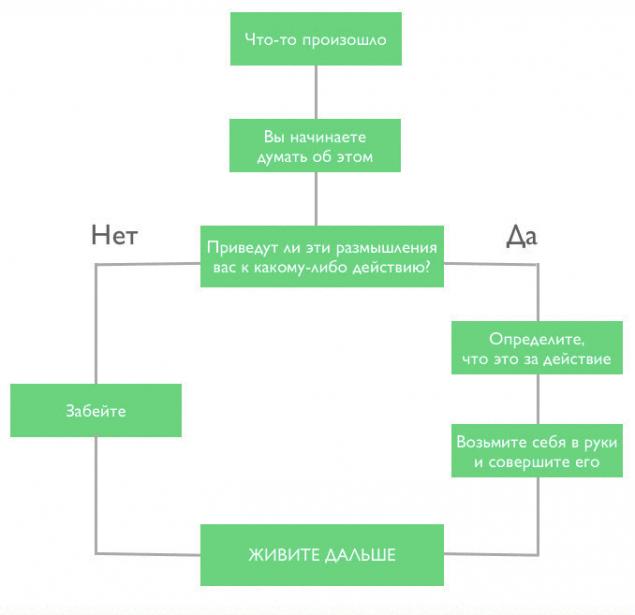
Not so easy to learn to let go. This requires practice. The ability score must be among those vital skills that we teach our children along with the ability to count, to tie your shoelaces and stay away from strangers. Not long ago I went for a run and someone shouted at me from a passing truck. I think he called me a faggot (or maybe Edward?). It really freaked me out, I even seem a bit jumped in surprise. They probably laughed there in his stall and gave each other a high five or something there such assholes usually do after yelling from the car.
In my life were the times when I would spend an enormous amount of energy, suffering from such injustices. But that day I wasn't going to do it, and it passed me by. I still felt the initial surge of rage and adrenaline, but decided to just skip this five-second event, and not to reflect on it for another half a day, and then tell everyone about it.
I continued to run and noticed that only a few seconds later, the street was again quiet and peaceful. There was not the slightest trace of what happened simply because I did not bring it to life in my head, I just ignored him.
I knew people who told the stories, and not once, about some not very pleasant dvadtsatisekundny incident which happened to them many years ago and which they never could forget. I think you also met such people. Don't fall into the same madness. Follow the chosen course: a hammer.
The ability to score does not mean you are always going to score. It only means that you are doing it consciously. You have a reason. The main thing is to catch yourself in the response. It all starts with anger and indignation in your head, usually in the form of a witty response or an internal sermon about decency and respect. You can start to scroll through several possible scenarios in which you show the offender who's boss. It is also very easy to get involved in a vengeful fantasy in which (for example) you like a tank/Terminator rush for a truck, why he eventually crashed into a tree, and you're standing and laughing and patting themselves on the sides.
When you catch yourself in these thoughts, remind yourself that you actually care about such things, and turn all their attention back to the material world. What did you have on the plan, once there was this small incident? Listen to the body: he needs to move on?
So hang up. Enter the next room, run another mile, mix drinks, jump on the bike... all that logically follows on in the life of a person who does not pay attention to the little things in life. But if you can't wait on something to think twice you better think about it.published
Source: theoryandpractice.ru/posts/9654-iskusstvo-zabivat

Of course, he didn't say so. According to most, he said, "you Know, I just don't pay attention to what is happening, but he could say and so, and commercials. It seems to me that the concept of care closer to the majority. I apologize in advance for the crudeness of this phrase — and use it I'll be here often, but nothing conveys this truth so well. When you tell someone to "ignore it", it is likely that you will look strange — but not the one who came to a lecture by Krishnamurti.
Everyone understands that in life sometimes there are unpleasant moments that are best to just leave it/not care. Not to score — think about what happened. For example, someone was rude to you on the phone, and you replay the incident in my head, you can't not care. But if you just hung up the phone, shrugged and quietly went to ride a bike, so you have a good score.
If you're worried, it does not mean that you are doing something useful, while it might seem that this is so. It seems quite natural that every time safariways on something, we are approaching some kind of answer. But this is not so, because the constant spinning in my head is the thought process and the thought process is not aimed at finding a solution to the useless.
This sheds light on one of our most deep-rooted and narrow-minded ideas about human thinking: we are confident that most thought valuable in themselves, what they are to something will lead. But most of our thoughts fill our head, and shield from real life. They do not lead to any important decisions or analytical conclusions, they simply absorb us and maybe even make our lives shorter.
We usually think that our thoughts perform some kind of function simply because they are caused by a strong emotion or because they are aimed at a subject that is important to us: fairness, respect, or the current state of society.
No. Thoughts have meaning only if they force your body to move and do something useful. This does not mean that any life disappointment, unkindness, or injustice must immediately respond with action. Quite the contrary. Usually nothing can be done or just don't want to do. And that's fine. In most cases it is better not to do anything just to score.
This concept may seem apathetic. In fact it is not. It's just a refusal to waste his energy and time thinking that anything will not lead. So if you decided on something to rot and make sure that it will lead to some response on what happened, and then move to action. Here is a good pattern of action.

Not so easy to learn to let go. This requires practice. The ability score must be among those vital skills that we teach our children along with the ability to count, to tie your shoelaces and stay away from strangers. Not long ago I went for a run and someone shouted at me from a passing truck. I think he called me a faggot (or maybe Edward?). It really freaked me out, I even seem a bit jumped in surprise. They probably laughed there in his stall and gave each other a high five or something there such assholes usually do after yelling from the car.
In my life were the times when I would spend an enormous amount of energy, suffering from such injustices. But that day I wasn't going to do it, and it passed me by. I still felt the initial surge of rage and adrenaline, but decided to just skip this five-second event, and not to reflect on it for another half a day, and then tell everyone about it.
I continued to run and noticed that only a few seconds later, the street was again quiet and peaceful. There was not the slightest trace of what happened simply because I did not bring it to life in my head, I just ignored him.
I knew people who told the stories, and not once, about some not very pleasant dvadtsatisekundny incident which happened to them many years ago and which they never could forget. I think you also met such people. Don't fall into the same madness. Follow the chosen course: a hammer.
The ability to score does not mean you are always going to score. It only means that you are doing it consciously. You have a reason. The main thing is to catch yourself in the response. It all starts with anger and indignation in your head, usually in the form of a witty response or an internal sermon about decency and respect. You can start to scroll through several possible scenarios in which you show the offender who's boss. It is also very easy to get involved in a vengeful fantasy in which (for example) you like a tank/Terminator rush for a truck, why he eventually crashed into a tree, and you're standing and laughing and patting themselves on the sides.
When you catch yourself in these thoughts, remind yourself that you actually care about such things, and turn all their attention back to the material world. What did you have on the plan, once there was this small incident? Listen to the body: he needs to move on?
So hang up. Enter the next room, run another mile, mix drinks, jump on the bike... all that logically follows on in the life of a person who does not pay attention to the little things in life. But if you can't wait on something to think twice you better think about it.published
Source: theoryandpractice.ru/posts/9654-iskusstvo-zabivat
Carlos Castaneda: the fear ische 3 of the enemy of man
Neuroplasticity: the Brain reflects our environment, our decisions, emotions and lifestyle










